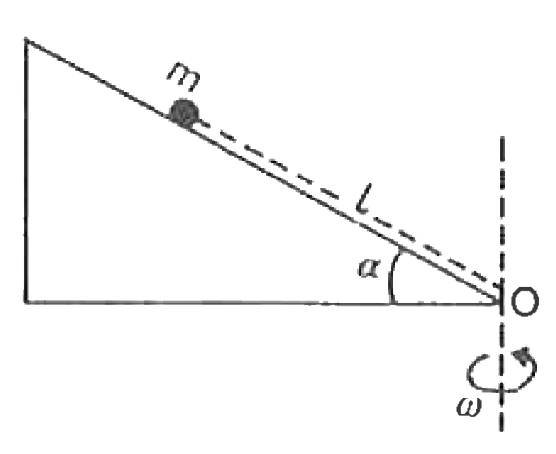Complete Solutions to Examples of chapter CENTRIPITAL AND CENTRIFUGAL FORCES of Class 11 book with complete answers and questions
| Class 11 | PHYSICS |
| Chapter | CENTRIPITAL AND CENTRIFUGAL FORCES |
| NN GHOSH | Examples |
| Number Of Questions | 12 |
| Academic Year | 2023-24 |
A train is moving at the rate of 60 km per hour around a curve of radius 500 m and the distance between the rails is 170 cm. By how much the outer rail be raised above the inner one so that there may be no lateral thrust on the outer rails ? `( g= 9.8 ms^(-2))`
View SolutionThe roadway bridge over a cannot is in the form of an arc of a circle of radius 20 m. what is the maximum speed with which a car cann cross the bridge without leaving the ground at the highet point ?
View SolutionA small body of mass 1/2 kg is tied to one end of a string of length 1m. With what horizontal velocity must the body be projected so that it may go round the peg to which the other end of the string is attached without slackening of the string at the highest point ?
View SolutionShow that the maximum tension in the string of a simple pendulum, when the amplitude `theta_(0)` is small, is `mg (1+ theta_(0)^(2))`. At what position of the pendulum is the tension maximum ?
View SolutionThe CG of a loaded taxi is 1.5 m above the ground and the distance between its wheels is 2 m. What is the maximum speed with which it can go round an unbanked curved of radisu 100 m without being turned upside down ? What minimum value of the coefficient of friction would be needed at this speed ?
View SolutionWith what velocity should a satellite be launched in the horizontalm direction at a height 300 km so that it can revolve round the earth ? (g at a height 300 km = `7.5 ms^(-2)` and radius of earth = 6400 km)
View SolutionA particle of mass m moves in a circle of radius R in such a way that its speed `(v)` varies with distance (s) as `v = a sqrt(s)` where a is a constant. Calcualte the acceleration and force on the particle.
View SolutionA ball is placed on a smooth chute inclined at an angle `alpha = 30^(@)` to the horizontal and rotating at frequency n=30 rpm about a vertical axis passing through its lower end. At what distance from the end of the chute does the ball rest ?

View SolutionTwo balls of masses `m_(1) = 0.5 kg and m_(2) = 0.3 kg` are connected by a nonstretchable string and slipped on to a horizontal , light rod. The rod is rotated with `omega = 110` rpm about a vertical axis passing through its centre. Find the tension of the string and the distance of the masses from the axis of rotation if `l=20` cm is the length of the string. Is the equilibrium of the balls stable ?

View SolutionA cyclist rides along a circular path in a horizontal plane where the coefficient of friction varies with distance from the centre O of the circular path as `mu = mu_(0)(1-(r)/(R))` where R is the maximum distance up to which the road is rough
Find the radius of the circular path along which the cyclist can ride with maximum velocity. What is this maximum velocity ?
View SolutionA particle of mass `m=2` kg is suspended in a vertical plane by two strings - one horizontal and the other inclined to the vertical by `alpha = 30^(@)`. Find the tension of the inclined string (a) an instant before the horizontal one is cut, (b) an instant after the horizontal one is cut.
View SolutionA particle moves with deceleration along a circle of radius R so that at any moment its tangential and normal accelerations are equal in moduli. At the initial moment `t=0` the velocity of the point equals `v_(0)`. Find (a) the velocity of the point as a function of t and s , (b) the resultant acceleration modulus as a function of `v`.
View Solution
Examples questions and complete solutions for chapter CENTRIPITAL AND CENTRIFUGAL FORCES of BHARATI BHAWAN PHYSICS (HINGLISH) of Class 11